Books
Black Lives Matter: Antiracist Books and Authors seeing massive Spike in Interest
Published
4 years agoon
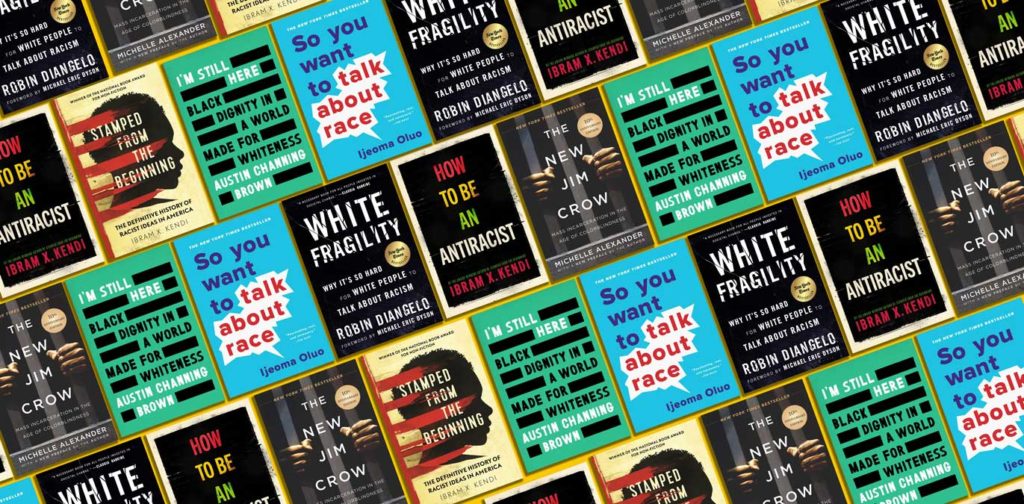
Awareness and education on race and racism could be a good starting point towards change
The Coronavirus/COVID-19 is still a concern across the globe, however with the recent deaths of Ahmaud Arbery, Breonna Taylor, and George Floyd; prejudice, police brutality, racism, and injustice has been at the forefront of many people news feed.
It has long been time, but it is never too late to begin to educate ourselves about the injustice and racism that African Americans and many people of color constantly face (especially if coming from a place of privilege).
Read More: Meghan Markle new video Post: “The Only Wrong Thing to Say is to Say Nothing”
The unjust murders of African American have created a national outrage as Black Lives Matter protests march all across the globe and demand justice and change to be had. And those that have experienced and witnessed injustice and racism as well as the family members that have lost loved ones – deserve a better version of the world.
We have curated a list of books that will help to educate yourself on how to be anti-racist, as well as provide history of racism and inequality. Along with the book titles we have provided a small summary from the publisher and additional information on where to purchase if interested. For a list of many more titles relating to the subject of anti-racism, justice, race and inequality, see link.
How to Be an Antiracist
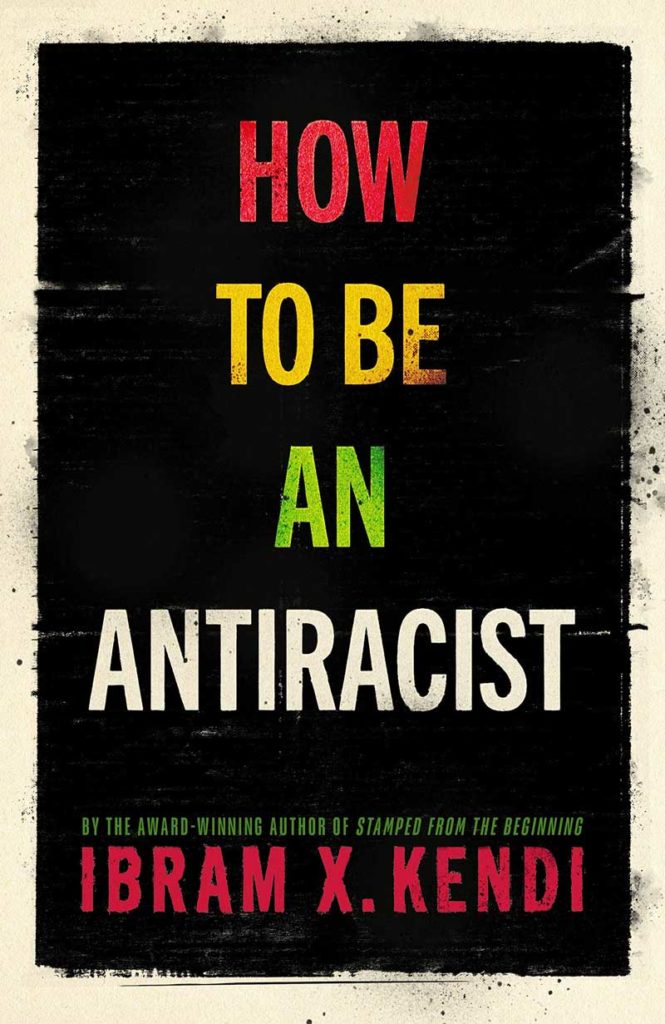
Antiracism is a transformative concept that reorients and reenergizes the conversation about racism–and, even more fundamentally, points us toward liberating new ways of thinking about ourselves and each other. At it’s core, racism is a powerful system that creates false hierarchies of human value; its warped logic extends beyond race, from the way we regard people of different ethnicities or skin colors to the way we treat people of different sexes, gender identities, and body types. Racism intersects with class and culture and geography and even changes the way we see and value ourselves. In How to Be an Antiracist, Kendi takes readers through a widening circle of antiracist ideas–from the most basic concepts to visionary possibilites–that will help readers see all forms of racism clearly, understand their posionous consequences, and work to oppose them in our systems and in ourselves. Kendi weaves an electrifying combination of ethics, history, law, and science with his own personal story of awakening to antiracism. This is an essential work for anyone who wants to go beyond the awareness of racism to the next step: contributing to the formation of a just and equitable society. Click to see “How to Be an Antiracist” also available on Amazon.
I’m Still Here: Black Dignity in a World Made for Whiteness
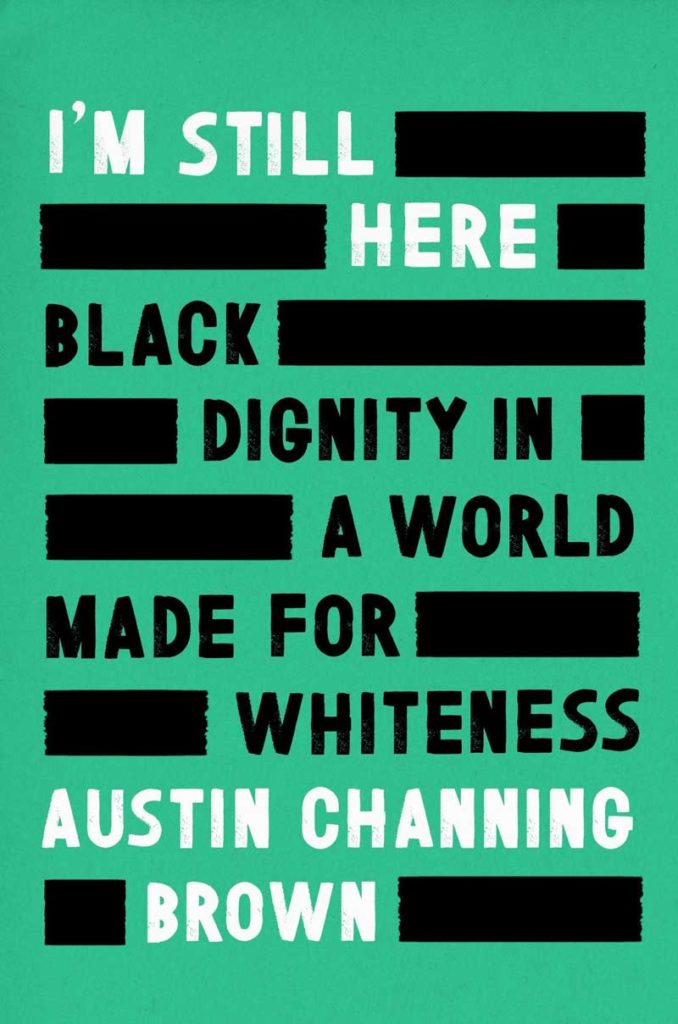
Austin Channing Brown’s first encounter with a racialized America came at age 7, when she discovered her parents named her Austin to deceive future employers into thinking she was a white man. Growing up in majority-white schools, organizations, and churches, Austin writes, “I had to learn what it means to love blackness,” a journey that led to a lifetime spent navigating America’s racial divide as a writer, speaker and expert who helps organizations practice genuine inclusion. In a time when nearly all institutions (schools, churches, universities, businesses) claim to value “diversity” in their mission statements, I’m Still Here is a powerful account of how and why our actions so often fall short of our words. Austin writes in breathtaking detail about her journey to self-worth and the pitfalls that kill our attempts at racial justice, in stories that bear witness to the complexity of America’s social fabric–from Black Cleveland neighborhoods to private schools in the middle-class suburbs, from prison walls to the boardrooms at majority-white organizations. Click to See “I’m Still Here” also available on Amazon and Walmart.
So You Want to Talk about Race
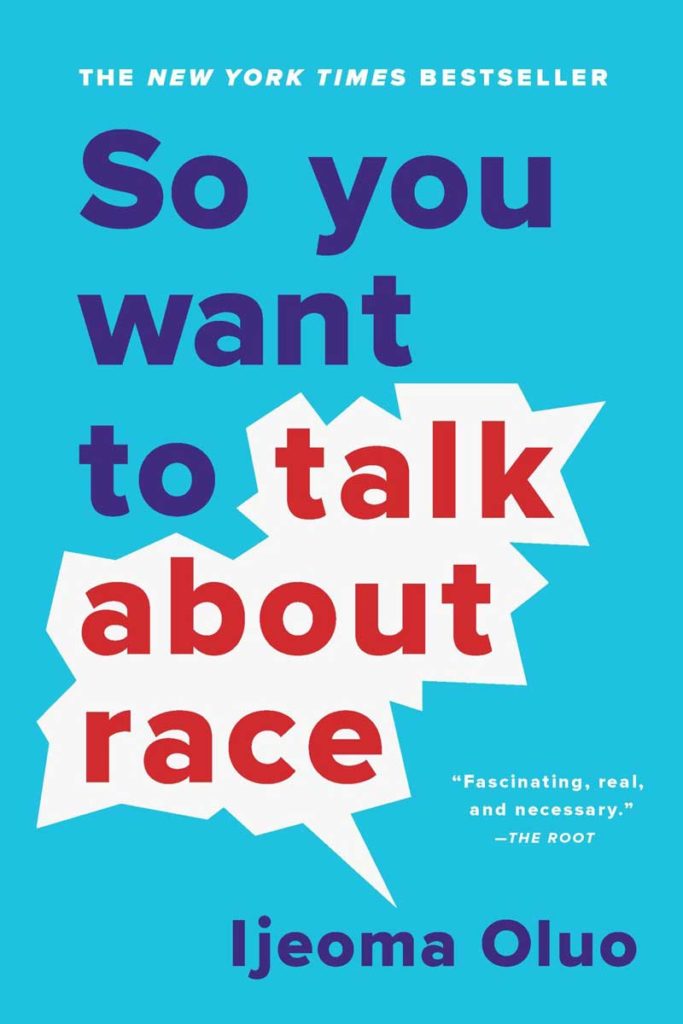
help Lynxotic and Independent Bookstores.
Also available on Amazon and Walmart.
Widespread reporting on aspects of white supremacy–from police brutality to the mass incarceration of Black Americans–has put a media spotlight on racism in our society. Still, it is a difficult subject to talk about. How do you tell your roommate her jokes are racist? Why did your sister-in-law take umbrage when you asked to touch her hair–and how do you make it right? How do you explain white privilege to your white, privileged friend?
In So You Want to Talk About Race, Ijeoma Oluo guides readers of all races through subjects ranging from intersectionality and affirmative action to “model minorities” in an attempt to make the seemingly impossible possible: honest conversations about race and racism, and how they infect almost every aspect of American life. Click to see “So You Want to Talk about Race” also available on Amazon and Walmart.
White Fragility: Why It’s So Hard for White People to Talk about Racism
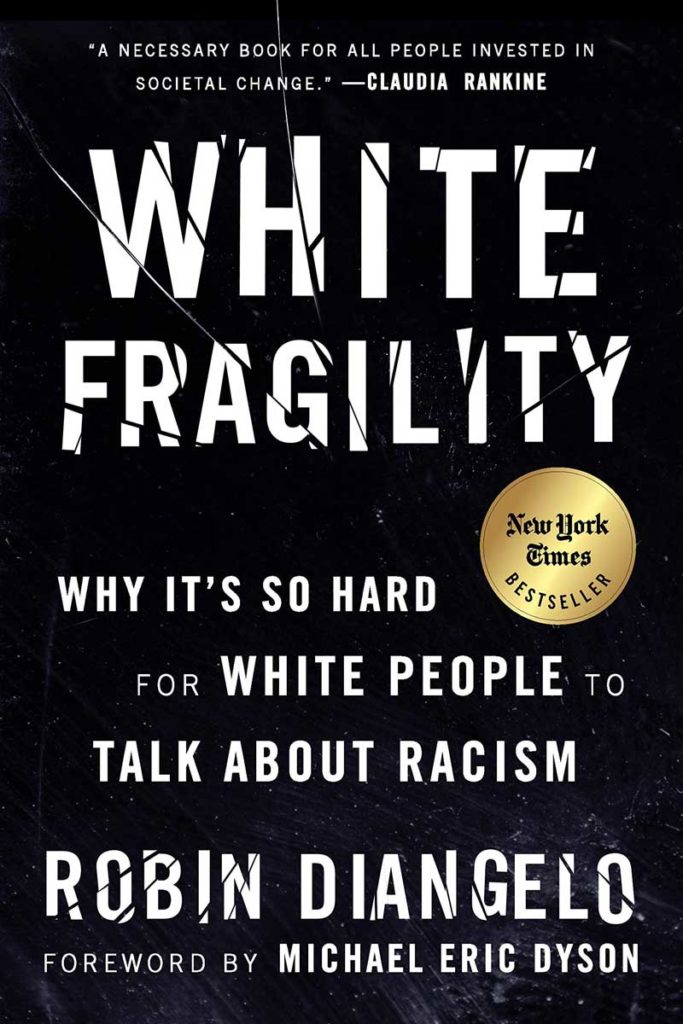
In this “vital, necessary, and beautiful book” (Michael Eric Dyson), antiracist educator Robin DiAngelo deftly illuminates the phenomenon of white fragility and “allows us to understand racism as a practice not restricted to ‘bad people’ (Claudia Rankine). Referring to the defensive moves that white people make when challenged racially, white fragility is characterized by emotions such as anger, fear, and guilt, and by behaviors including argumentation and silence. These behaviors, in turn, function to reinstate white racial equilibrium and prevent any meaningful cross-racial dialogue. In this in-depth exploration, DiAngelo examines how white fragility develops, how it protects racial inequality, and what we can do to engage more constructively. Click to see “White Fragility” also available on Amazon and Walmart.
The New Jim Crow: Mass Incarceration in the Age of Colorblindness
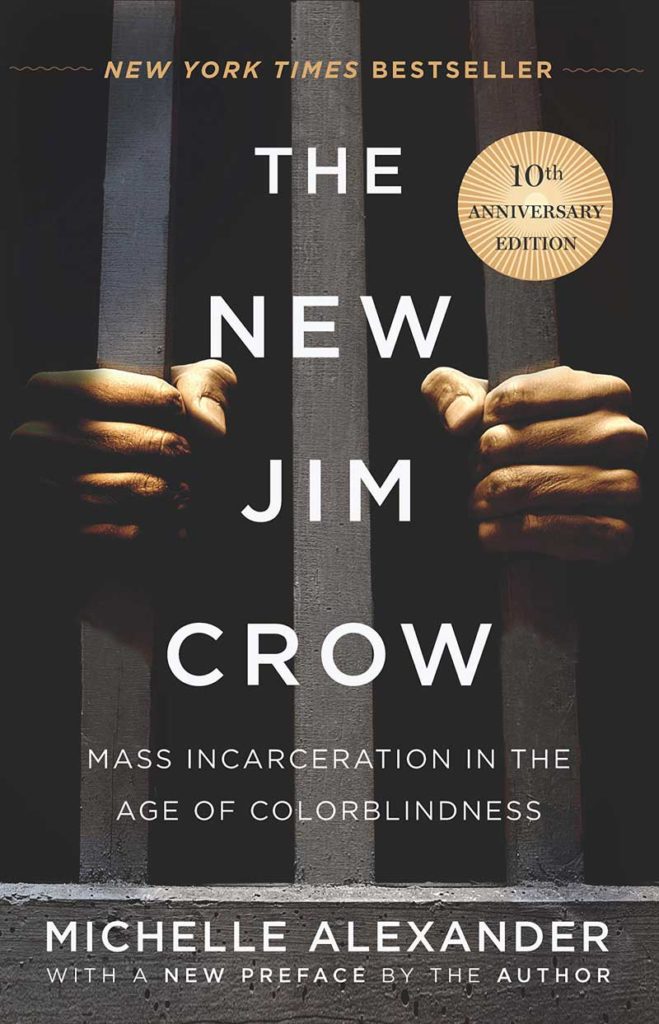
Also available on Amazon and Walmart.
Seldom does a book have the impact of Michelle Alexander’s The New Jim Crow. Since it was first published in 2010, it has been cited in judicial decisions and has been adopted in campus-wide and community-wide reads; it helped inspire the creation of the Marshall Project and the new $100 million Art for Justice Fund; it has been the winner of numerous prizes, including the prestigious NAACP Image Award; and it has spent nearly 250 weeks on the New York Times bestseller list.
Most important of all, it has spawned a whole generation of criminal justice reform activists and organizations motivated by Michelle Alexander’s unforgettable argument that “we have not ended racial caste in America; we have merely redesigned it.” As the Birmingham News proclaimed, it is “undoubtedly the most important book published in this century about the U.S.” Click to See “The New Jim Crow” also available on Amazon and Walmart.
Stamped from the Beginning: The Definitive History of Racist Ideas in America
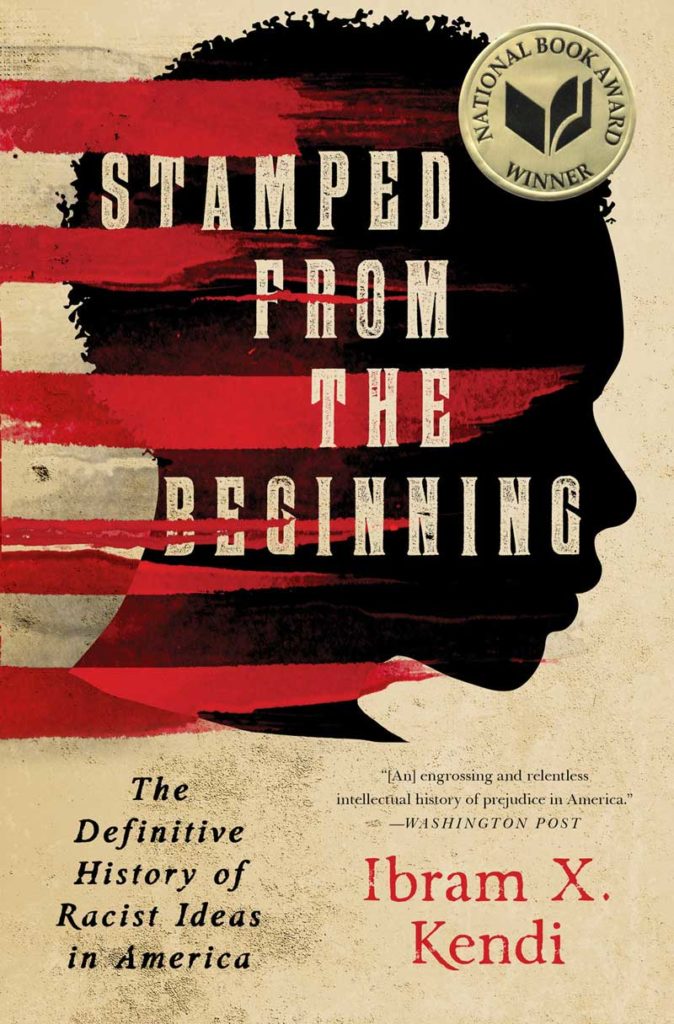
help Lynxotic and Independent Bookstores.
Also available on Amazon and Walmart.
Some Americans insist that we’re living in a post-racial society. But racist thought is not just alive and well in America–it is more sophisticated and more insidious than ever. And as award-winning historian Ibram X. Kendi argues, racist ideas have a long and lingering history, one in which nearly every great American thinker is complicit. In this deeply researched and fast-moving narrative, Kendi chronicles the entire story of anti-black racist ideas and their staggering power over the course of American history. Heuses the life stories of five major American intellectuals to drive this history: Puritan minister Cotton Mather, Thomas Jefferson, abolitionist William Lloyd Garrison, W.E.B. Du Bois, and legendary activist Angela Davis. As Kendi shows, racist ideas did not arise from ignorance or hatred. They were created to justify and rationalize deeply entrenched discriminatory policies and the nation’s racial inequities. Click to See “Stamped from the Beginning” also available on Amazon and Walmart.
Find books on Racial Equality, LGBTQ+, Sustainable Energy, and many other topics at our sister site: Cherrybooks on Bookshop.org
Enjoy Lynxotic at Apple News on your iPhone, iPad or Mac and subscribe to our newsletter.
Lynxotic may receive a small commission based on any purchases made by following links from this page.


